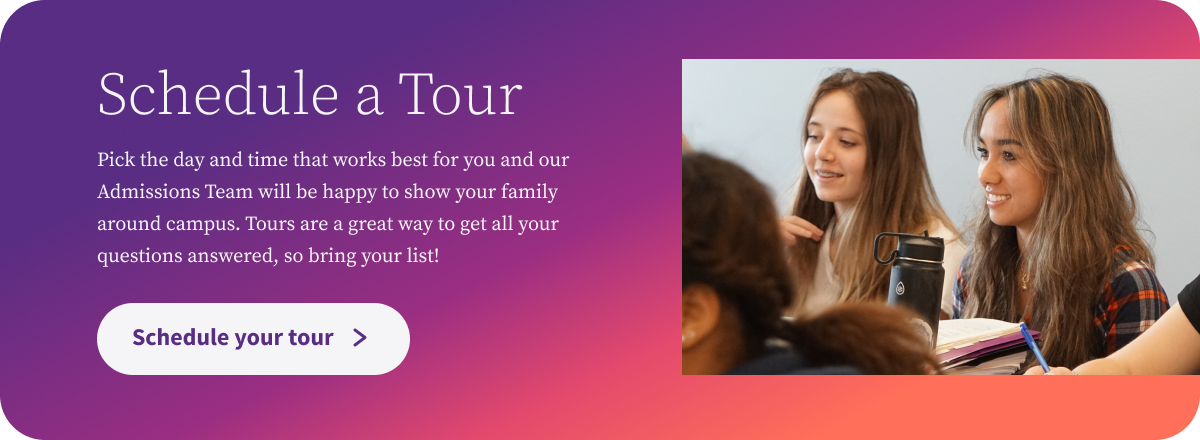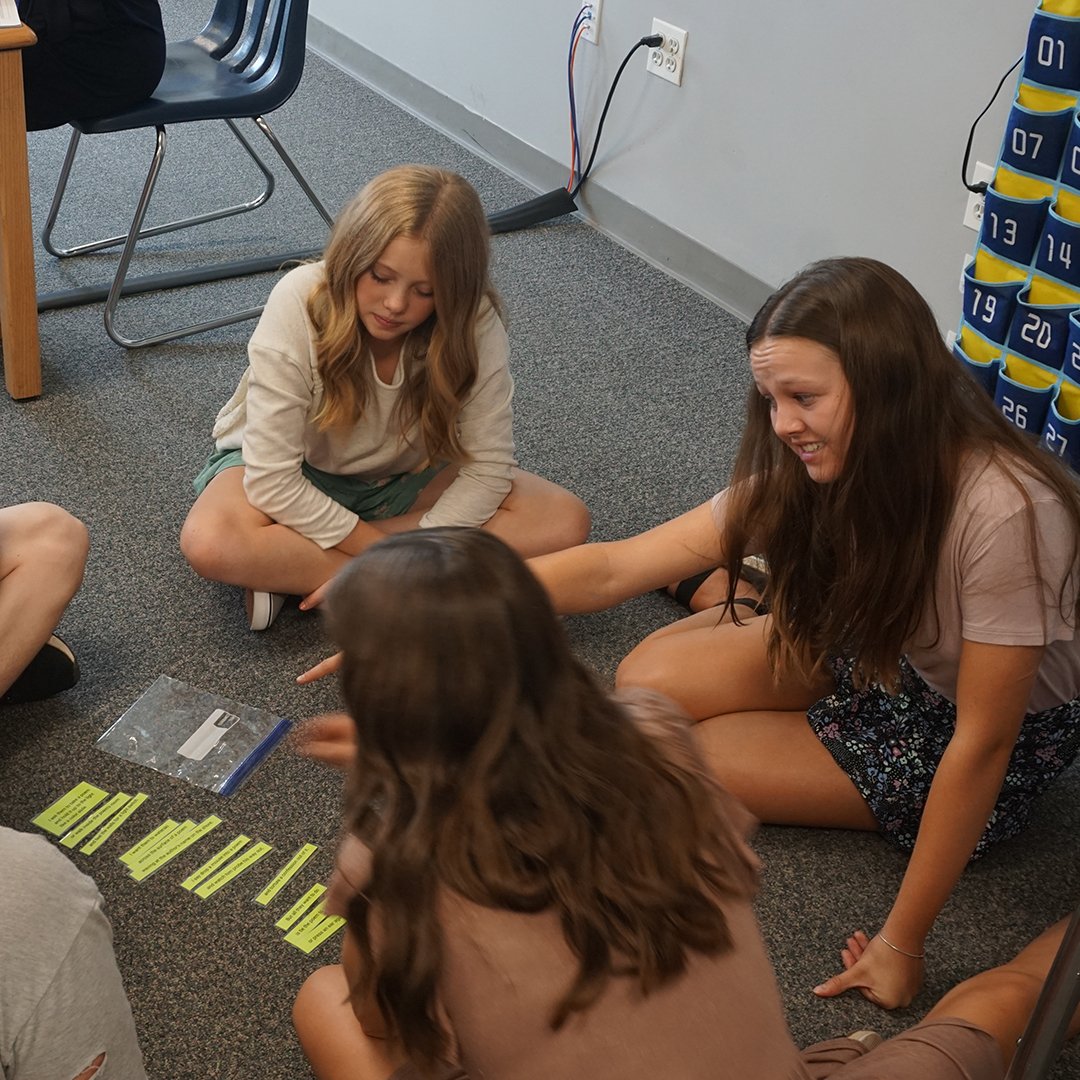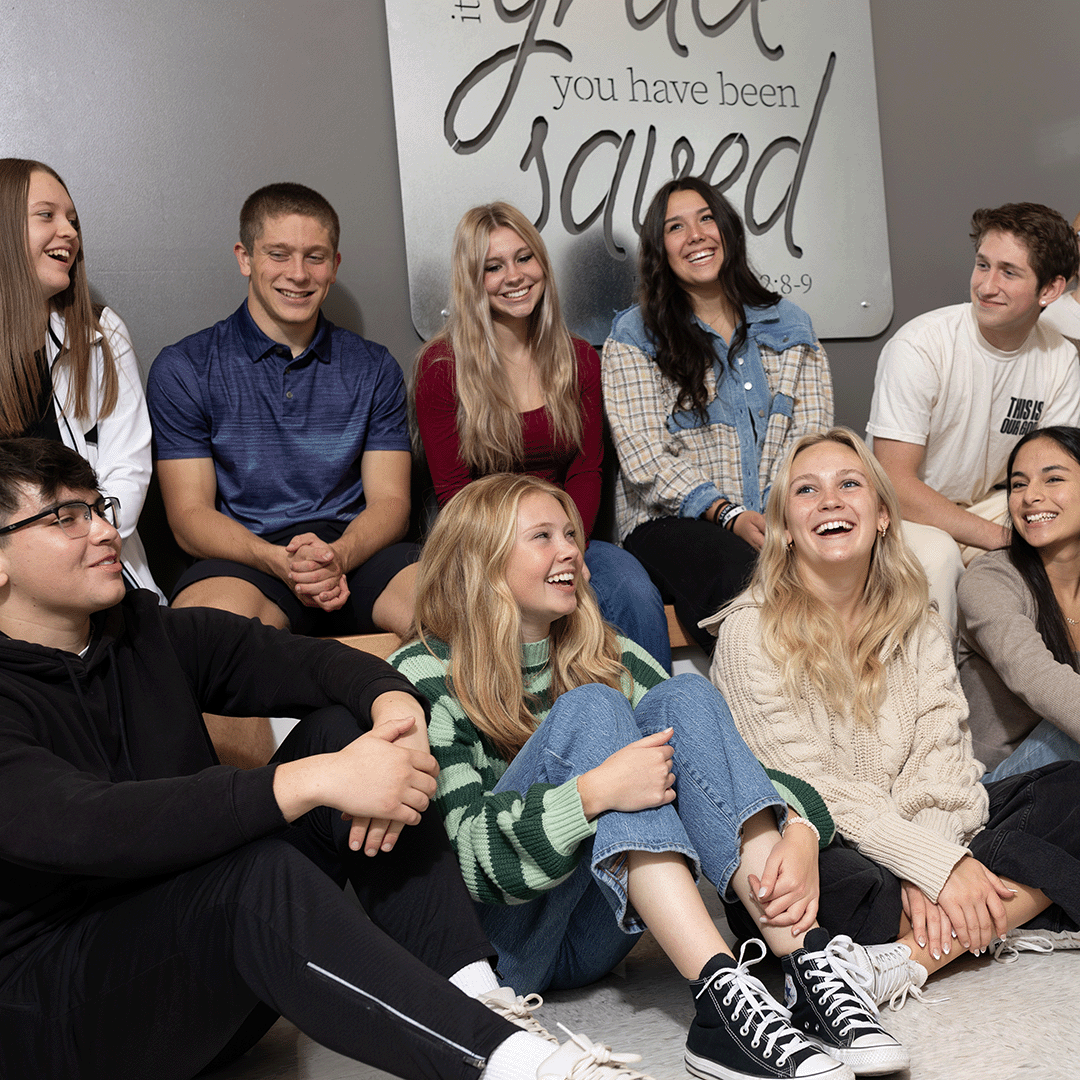Public to Private: Why Make the Switch
Considering private ed for your student? Discover why more families are making the switch to schools that nurtures both academic and personal growth.
BY Hannah Buchholz
When it comes to your child’s education, few decisions feel weightier. You want a school that nurtures their gifts, strengthens their character, and helps them grow in confidence. For Christian families, they also desire their students to be surrounded by adults who will encourage growth in Christ.
Private education offers parents a meaningful opportunity to partner with a school community that is deeply invested in both academic excellence and personal growth.
If you are considering private education for your family, here are some of the reasons why many parents are making the switch.
A Community That Knows and Cares for Each Student
One of the hallmarks of private education is the strong sense of community. Smaller class sizes allow teachers to truly know their students – understanding not just how they learn, but who they are. In these environments, students are far more likely to feel connected, supported, and motivated to thrive.
Studies show that students in smaller classes consistently outperform their peers in larger settings and report feeling more engaged with their learning.1 But the benefits go beyond academics. Private schools often foster a sense of belonging that helps students build lifelong friendships and develop confidence rooted in a strong sense of identity.
A recent LuHi grad shares how this rang true for her, "I chose LuHi because when I shadowed there, I really felt like the teachers cared about me as an individual. Other schools I shadowed made me feel like just another face in the crowd, but everyone at LuHi had created a community and wanted me to be a part of it. [In my four years there], I truly felt like part of a family."

Freedom to Focus on True Learning
Unlike public schools, private schools are not bound by state-mandated curriculum standards, such as Common Core. This flexibility allows private educators to design coursework that encourages deeper understanding rather than just teaching to standardized tests.
Private school students consistently demonstrate strong college readiness. One way to measure this is through ACT and SAT results. According to the College Board, students from independent private schools score significantly higher on the SAT compared to their public school peers, with averages of 535 in reading, 542 in writing, and 580 in math, versus public school averages of 492, 478, and 501, respectively. Similarly, private school students score an average of nearly four points higher on the ACT.
Another recent LuHi grad shares, "At LuHi, I was challenged academically and encouraged spiritually in ways that helped me transition into college life with confidence. The habits and foundations built during my time there made a huge difference when I faced new pressures and opportunities at a large university."
This academic freedom also creates space for teachers to integrate faith, character development, critical thinking, and service into the learning experience.
At LuHi, for example, teachers — who are not only highly skilled but also grounded in God’s Word — have the flexibility to design classes that prepare students both academically and spiritually for what lies ahead.
A Safer, More Supportive Environment
Parents often cite safety and school culture as top priorities when choosing a private school. Private schools typically have lower student-to-staff ratios, fostering an environment where students feel seen, supported, and held to high standards of respect and responsibility.
Students are more likely to experience strong relationships with peers and staff, which research shows is key to both academic success and emotional well-being. In environments that emphasize mutual respect, character development, and shared values, students are empowered to grow into thoughtful, resilient young adults.
At schools like LuHi, students find not just a safe environment, but one that intentionally weaves biblical truth, authentic relationships, and leadership development into daily life.
A 2021 grad shares this experience, "The teachers at LuHi genuinely care about you — not just about your grades, but about who you are as a person. They want to see you succeed in life, not just in school. I always felt like I had someone in my corner, someone who believed in me."
Why Many Families Are Re-Evaluating Educational Choices
Across the country, parents are thoughtfully reconsidering what they want from their child's education. National surveys highlight growing concerns:
- A Pew Research Center survey found that 82% of teachers believe the general state of public K-12 education has worsened over the past five years.
- Half of American parents polled in 2023 said they believe public education is heading in the wrong direction.
- Staffing shortages are impacting public education, with 86% of public schools reporting difficulty hiring qualified teachers in the 2023–24 school year.
- And despite tremendous effort, student academic recovery post-pandemic remains slow, particularly in reading and math.
These realities have led many families to seek a more stable, values-driven educational environment — one where students are surrounded by teachers who are deeply invested in both their academic and personal growth.
Private schools, with their ability to adapt, their strong community environments, and their mission-driven leadership, are increasingly providing the stability, excellence, and faith-based foundation that families are seeking.
Choosing the Right Fit for Your Family
Every student is unique, and every family has different needs. If you are looking for a place where students are known by name, where education is rooted in truth, and where a community comes alongside you to nurture your child’s mind, heart, and faith, private Christian education could be the right next step.
At Lutheran High School, we are proud to be one example of this mission in action. Our students are supported by a dedicated staff, shaped by strong academics and a gospel-centered community, and challenged to become leaders who impact the world for Christ.
If you are exploring private education, we would love to walk with you in your journey. Contact us to learn more about what it means to be part of the LuHi family.
Originally published in 2020, updated in 2025 for accuracy.
1) https://www.sciencedirect.com/science/article/abs/pii/S0883035519300953?utm_source=chatgpt.com and https://en.wikipedia.org/wiki/Class-size_reduction?utm_source=chatgpt.com




.JPG.jpg)